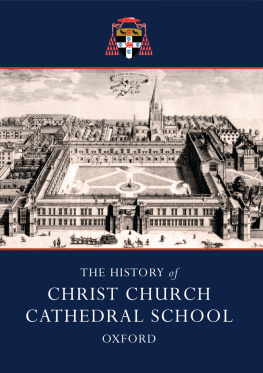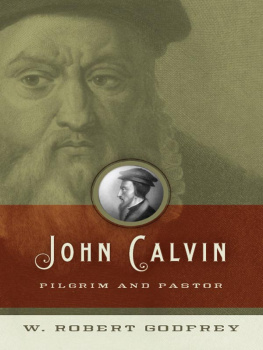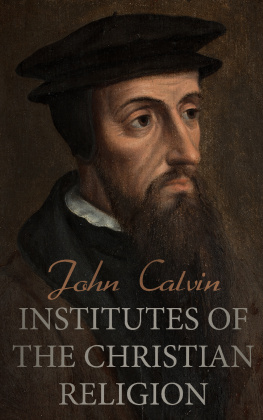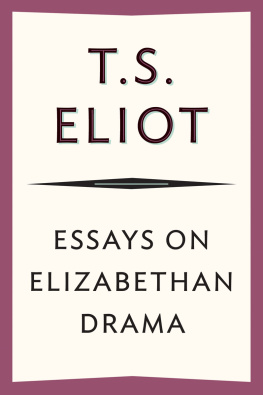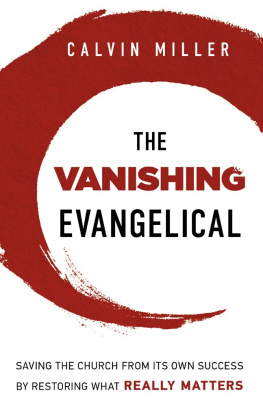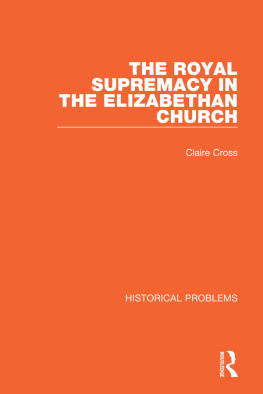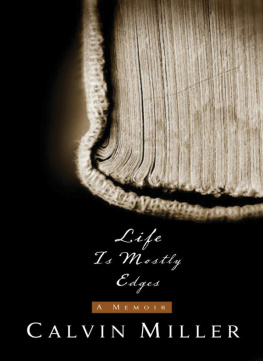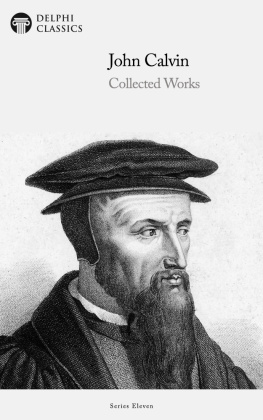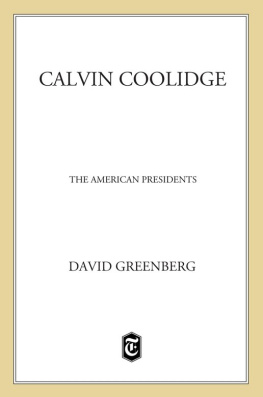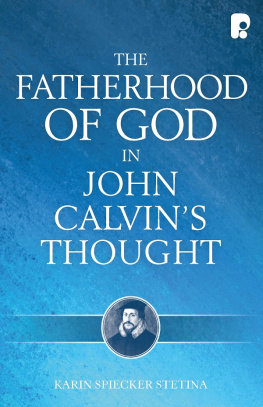THE LAUDIANS AND THE ELIZABETHAN
CHURCH: HISTORY, CONFORMITY AND
RELIGIOUS IDENTITY IN
POST-REFORMATION ENGLAND
RELIGIOUS CULTURES IN THE EARLY MODERN WORLD
| Series Editor: | Fernando Cervantes |
| Peter Marshall |
| Philip Soergel |
TITLES IN THIS SERIES
1 Possession, Puritanism and Print: Darrell, Harsnett, Shakespeare and the Elizabethan Exorcism Controversy
Marion Gibson
2 Visions of an Unseen World: Ghost Beliefs and Ghost Stories in Eighteenth-Century England
Sasha Handley
3 Diabolism in Colonial Peru, 15601750
Andrew Redden
4 Sacred History and National Identity: Comparisons between Early Modern Wales and Brittany
Jason Nice
5 Monstrous Births and Visual Culture in Sixteenth-Century Germany
Jennifer Spinks
6 The Religious Culture of Marian England
David Loades
7 Angels and Belief in England, 14801700
Laura Sangha
FORTHCOMING TITLES
Religious Space in Reformation England: Contesting the Past
Susan Guinn-Chipman
Anglo-German Relations and the Protestant Cause: Elizabethan Foreign Policy and Pan-Protestantism
David Scott Gehring
John Bale and Religious Conversion in Reformation England
Oliver Wort
Images of Islam, 14531600: Turks in Germany and Central Europe
Charlotte Colding Smith
Jews and the Renaissance of Synagogue Architecture, 14501750
Barry Stiefel
THE LAUDIANS AND THE ELIZABETHAN
CHURCH: HISTORY, CONFORMITY AND
RELIGIOUS IDENTITY IN
POST-REFORMATION ENGLAND
BY
Calvin Lane
First published 2013 by Pickering & Chatto (Publishers) Limited
Published 2016 by Routledge
2 Park Square, Milton Park, Abingdon, Oxon OX14 4RN
711 Third Avenue, New York, NY 10017, USA
Routledge is an imprint of the Taylor & Francis Group, an informa business
Taylor & Francis 2013
Calvin Lane 2013
To the best of the Publishers knowledge every effort has been made to contact
relevant copyright holders and to clear any relevant copyright issues.
Any omissions that come to their attention will be remedied in future editions.
All rights reserved, including those of translation into foreign languages. No part of
this book may be reprinted or reproduced or utilised in any form or by any
electronic, mechanical, or other means, now known or hereafter invented,
including photocopying and recording, or in any information storage or retrieval
system, without permission in writing from the publishers.
Notice:
Product or corporate names may be trademarks or registered trademarks, and
are used only for identification and explanation without intent to infringe.
BRITISH LIBRARY CATALOGUING IN PUBLICATION DATA
Lane, Calvin.
The Laudians and the Elizabethan Church: history, conformity and religious
identity in post-Reformation England. (Religious cultures in the early modern
world)
1. Church of England England History 17th century. 2. Great Britain
Church history 17th century. 3. Laud, William, 15731645 Influence. 4.
Dissenters, Religious England History 17th century.
I. Title II. Series
283.4209032-dc23
ISBN-13: 978-1-84893-351-4 (hbk)
Typeset by Pickering & Chatto (Publishers) Limited
CONTENTS
For Denise
quocumque perrexeris, pergam
Ruth 1:16
It may be feared that God was neither in that great and terrible wind which threw down so many monasteries and religious houses in the reign of King Henry; nor in the earthquake which did so often shake the very foundations of the state in the time of King Edward; nor in the fire in which so many godly and religious persons were consumed to ashes in the days of Queen Mary; but that he shewed himself in that still small voice which breathed so much comfort to the souls of his people, in the gracious and fortunate government of a virgin Queen.
Peter Heylyn, Ecclesia Restaurata
Like many others, this book has had a long gestation and has benefited from the help of a number of colleagues and teachers. As it is based on my University of Iowa PhD dissertation, I must first thank, of course, Ralph Keen, whose support and encouragement over the years has been unsurpassed. Similarly, Raymond Mentzer has been a fantastic guide through the wider world of scholarly research. Ralph and Ray have been superb mentors. I must also thank two other historians who had a major impact on the early life of this project. My work on Peter Smart began in a seminar with Dwight Bozeman, whose inimitable expertise in the field of Puritan studies was a great resource before his well-deserved retirement. The real genesis of this book, however, began even earlier, when Peter Kaufman, with great though characteristic liberality, allowed a senior undergraduate at the University of North Carolina at Chapel Hill to join one of his graduate seminars. His generous admission in 2002 has resulted in this book more than a decade later. These are but a few of the exceptional teachers who have left a mark on this project. Likewise, the staff and editors at Pickering & Chatto, particularly Philip Good and Ruth Ireland, have been attentive and flexible. Also, I am indebted to the series editor Peter Marshall (whose own scholarship has influenced this work) for his grace and understanding during the contract stage as well as his critical review. A host of others have been very helpful to guide, criticize or simply listen. Among these, Marjon Ames, Gary Jenkins, Kathleen Kamerick, Michael Kelly, Thomas Mayer, Scott McGinnis, Anthony Milton, David Neelands, Brown Patterson, Alvin Snider and William Tighe have been generous with their time. Likewise, audiences at several conferences, particularly at meetings of the Sixteenth Century Society Conference, have helped me to test many of the ideas in this book. I am also extremely grateful to work with colleagues who care about professional and personal development at Nashotah House Theological Seminary, especially Garwood Anderson, Steven Peay, Arnold Klukas and Daniel Westberg. My students have also suffered through lectures on this material and, in one seminar, were happy to read portions of the manuscript. Among them I must thank Charles Hart, Nathaniel Kidd and Thomas Pettigrew.
Without question, I am indebted to the capable staff members at the University of Iowa libraries, particularly David Schoonover, as well as the incredibly resourceful librarians at the Frances Donaldson Library at Nashotah House, principally David Sherwood and Laura Hummer, who have, in a sense, performed works of supererogation. I have also benefited from scores of librarians at the Newberry Library, the Folger Shakespeare Library, the National Archives of the United Kingdom, the British Library, the Parliamentary Archives, the Lambeth Palace Library, the St Pauls Cathedral Library, and the Bodleian Library, Oxford University. Moreover, my research was supported by generous grants from the University of Iowa, the Historical Society of the Episcopal Church, and the Mellon Foundation.
My work has been richly shaped by friendships made while in graduate school. A wide range of conversations over both coffee and beer, on long car rides to conferences, and during lunch meetings on the third floor of Gilmore Hall have left their mark. In particular I must highlight how grateful I am to have trained in early modern studies with a strong cohort of folks working in the same area. David Howlett, Douglas Jones, Ezra Plank, Peter Yoder and, of course, Denise Kettering have contributed to my scholarship in ways that I cannot fully express, and thus I borrow from the psalms:



